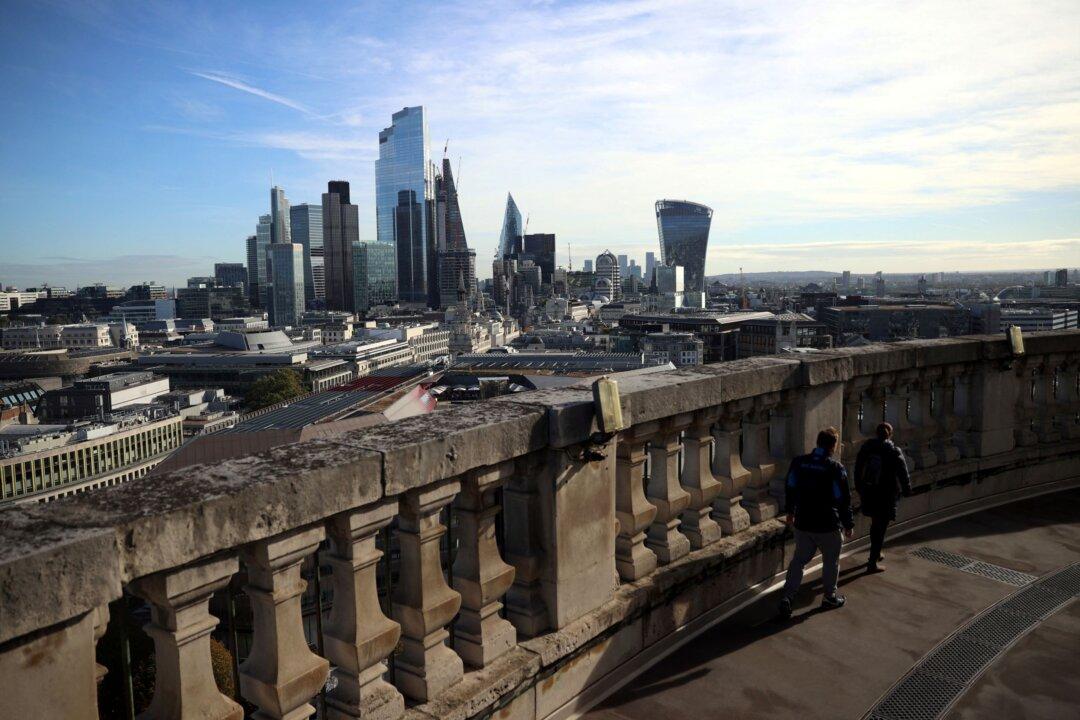LONDON—Britain’s economy grew more slowly than previously thought in the July-September period, before the Omicron variant of the coronavirus posed a further threat to the recovery later in the year, official data showed on Wednesday.
Gross domestic product in the world’s fifth-biggest economy increased by 1.1 percent in the third quarter, weaker than a preliminary estimate of growth of 1.3 percent.





